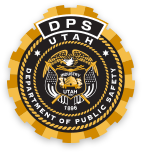FAQ – Utah’s .05 BAC Law
The 2017 Utah Legislature passed HB155 “Driving Under the Influence and Public Safety Revisions.” The bill takes effect on December 30, 2018. The following information may be utilized to address inquiries about the new, lower BAC limit.
Q. What is the goal of the lowered BAC limit?
A. The Utah legislature passed HB155 to save lives by preventing drunk driving, which senselessly kills and injuries people every year in Utah.
The presence of alcohol in a driver’s system, even at a level under the previous 0.08 BAC limit, presents a danger on Utah’s roadways.
Q. Is drunk driving a big public safety issue in Utah?
A. Yes.
Despite decades of public campaigns and other efforts to discourage driving after drinking, survey and observational data show that many people continue to do so.
Over the last five years, there were 54,402 arrests for DUI in Utah which represents an average of 29.8 per day.
Mothers Against Drunk Driving estimates that the average impaired driver has driven while impaired 80 times before first arrest.
Q. How does BAC affect driving?
A. Research from laboratory and driving simulator studies regarding the effects of alcohol on driving-related skills (divided attention, vigilance, tracking, perception, and reaction time) has shown that several types of performance are affected by BAC levels as low as 0.01.
The NTSB concluded that BAC levels as low as 0.01 have been associated with driving-related performance impairment and BAC levels as low as 0.05 have been associated with significantly increased risk of fatal crashes.
The chart below provides details about the type of impairment observed at certain BAC levels.

Q. How are police officers going to enforce the new law?
A. For law enforcement officers, this law won’t change anything.
Law enforcement officers will continue to make arrests based on observed impairment.
By focusing on impairment instead of a predetermined BAC level, officers will be able to identify and arrest both alcohol-impaired and drug-impaired drivers from Utah roadways.
Q. How have law enforcement agencies prepared this new law?
A. Law enforcement agencies statewide have prepared through proactive planning.
All law enforcement agencies were required to complete Standardized Field Sobriety Testing (SFST) refresher training as part of the legislation.
Q. How will we know if this law is effective and accomplishing the goal of saving lives and preventing drunk driving?
A. The Utah Department of Public Safety and National Highway Traffic Safety Administration will be conducting a comprehensive analysis of the impacts of the change in Utah’s BAC law.
Q. What can people do to stay safe and not get a DUI when they plan on drinking?
A. If an individual plans on drinking, s/he should plan on not driving.
Every instance of impaired driving is 100% preventable.
There are many options available for a safe and sober ride home – designated drivers, taxis, ride shares. There is no excuse for choosing to drink and drive.
